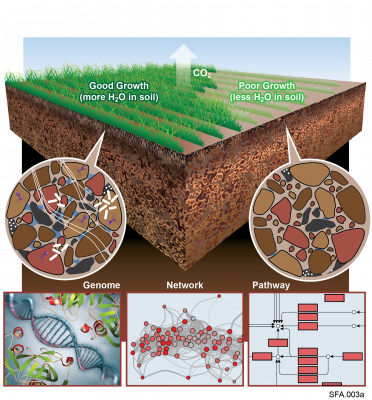Category
Description
The Thermo Scientific™ Q Exactive™ GC hybrid quadrupole Orbitrap Mass Spectrometer provides an unmatched combination of sensitivity, mass-accuracy and resolving power in a single analysis for the highest confidence in compound discovery, identification, and quantitation. With best-in-class performance characteristics for both quantitative and discovery workflows, the Q Exactive GC system allows the most comprehensive characterization of complex samples. The full MS scanning sensitivity combined with the selectivity achieved at resolutions of 50,000 and higher provides detection limits comparable to the best GC-triple quadrupoles while operating in an untargeted full MS scan mode. The included chemical ionization source provides soft ionization for pseudomolecular ion generation, and the analytical quadrupole and HCD cell allow for structural characterization experiments through MS/MS fragmentation. This system offers the quantitative power of a GC triple quadrupole MS combined with the high precision, full-scan HRAM capabilities only available in combination with Thermo Scientific™ Orbitrap™ technology. For metabolomics analyses an Agilent single quadrupole GC-MS for is coupled to a 5975C inert XL MSD using a Q Exactive Detector.
Explore this capability and more at EMSL's Omics & Mass Spectrometer (MS) resources page under Omics and Mass Spectrometry for Metabolomics.
Instrument Name: Q Exactive GC Orbitrap Mass Spectrometer
Model: Q Exactive™ GC Orbitrap™ GC-MS/MS
Platform: Q Exactive GC-MS System (GC-MS/MS)
Data Acquisition: GC-EI-HMS, GC-SIM
Method Taxon: Mass spectrometry, Gas Chromatography Mass Spectrometry (GC-MS),
Gas Chromatography Electron Ionisation Mass Spectrometry (EI-MS)
Topic Areas: Omics, Metabolomics, Small Molecule Detection
Projects (7)
Last updated on 2024-02-11T22:41:43+00:00 by LN Anderson PNNL DataHub NIAID Program Project: Modeling Host Responses to Understand Severe Human Virus Infections, Multi-Omic Viral Dataset Catalog Collection Background The National Institute of Allergy and Infectious Diseases (NIAID) "Modeling Host...
Category
Datasets
45
The Phenotypic Response of the Soil Microbiome to Environmental Perturbations Project (Soil Microbiome SFA) at Pacific Northwest National Laboratory is a Genomic Sciences Program Science Focus Area (SFA) Project operating under the Environmental Microbiome Science Research Area. The Soil Microbiome...
Datasets
45
Last updated on 2024-02-11T22:41:43+00:00 by LN Anderson Omics-LHV Profiling of Host Response to Influenza A Virus Infection Background Influenza A virus ( IAV ) is a high risk biological agent belonging to the Orthomyxoviridae family is classified as a Category C priority pathogen by the National...
Category
Datasets
8
Last updated on 2024-02-11T22:41:43+00:00 by LN Anderson Omics-LHV Profiling of Host Response to Ebola Virus Infection Background Ebola virus ( EBOV ) is a high risk biological agent, belonging to the Flaviviridae family, and is classified as a Category A priority pathogen by the National Institute...
Category
Datasets
6
Last updated on 2024-02-11T22:41:43+00:00 by LN Anderson Omics-LHV Profiling of Host Response to MERS-CoV Virus Infection Background Middle East Respiratory Syndrome coronavirus ( MERS-CoV ), part of the Coronaviridae family, is classified as a Category C priority pathogen by the National Institute...
Category
Datasets
15
Last updated on 2024-02-11T22:41:43+00:00 by LN Anderson Omics-LHV Profiling of Host Response to West Nile Virus Infection Background West Nile virus ( WNV ) belongs to the mosquito-borne Flaviviridae family and is classified as a Category A priority pathogen by the National Institute of Allergy and...
Category
Datasets
11
Last updated on 2023-02-23T19:37:46+00:00 by LN Anderson PerCon SFA Project Publication Experimental Data Catalog The Persistence Control of Engineered Functions in Complex Soil Microbiomes Project (PerCon SFA) at Pacific Northwest National Laboratory ( PNNL ) is a Genomic Sciences Program...
Datasets
5




